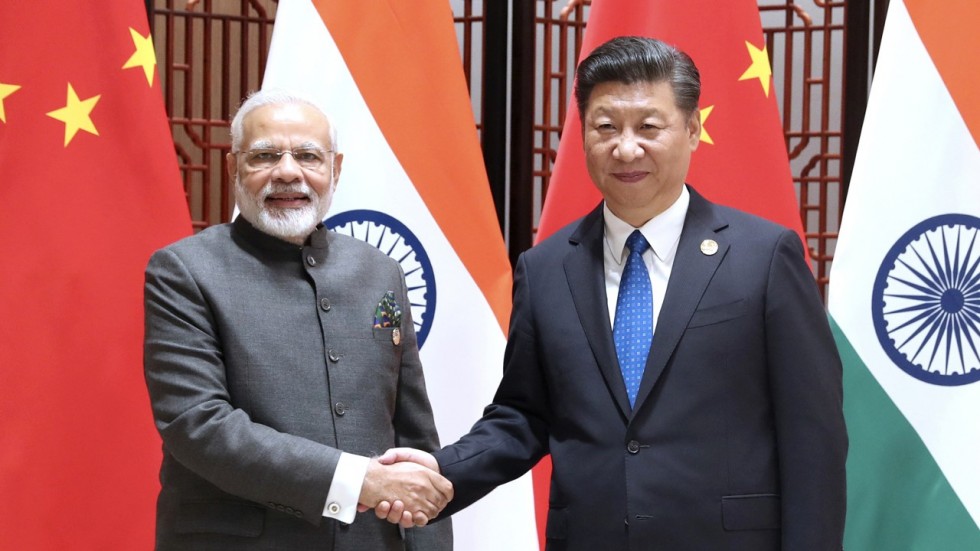
(TibetanReview.net, Sep06, 2017) – Meeting at the end of the 9th BRICS summit held over Sep 3-5 in China’s coastal city of Xiamen, Indian Prime Minister Narendra Modi and Chinese President Xi Jinping have agreed on Sep 5 that keeping peace on their border was necessary to further deepen their bilateral ties. The meeting followed the resolution only days earlier a 73-day tense military standoff between the two sides at Doklam, a patch of plateau territory claimed by both Bhutan and China and which is of vital strategic concern to India.
China’s official Xinhua news agency cited Xi as having said that healthy and stable relations between the two countries were in line with the fundamental interests of their people. China is willing to work with India on the basis of the Five Principles of Peaceful Coexistence, which were put forward by both countries, to improve political mutual trust, promote mutually beneficial cooperation, and push Sino-Indian ties along a right track, Xi was further cited as saying after meeting with Modi.
The two met after the conclusion of the BRICS Summit, reportedly with no previous certainty about the meeting being held. Modi and Xi agreed that “peace and tranquillity in the border areas was a prerequisite for the further development of (bilateral) relationship”, India’s Foreign Secretary S Jaishankar was quoted as telling the media.
Jaishankar has described the discussions between the two sides as “forward-looking and constructive”, suggesting that they had decided to move forward from the Dolkam standoff.
He has said that during their hour-long meeting, both sides agreed that “defence personnel must maintain strong contacts to ensure a situation like what happened recently” did not recur. Jaishankar has said that time and again during the press briefing after the leaders’ meeting, the focus of the conversation was on efforts to ensure “what happened recently” didn’t happen again. He has, however, never used the word “Doklam” throughout his media briefing.
The BRICS Summit brings together representatives from Brazil, Russia, India, China, South Africa and beyond to strengthen South-South cooperation and give a greater voice to the world’s emerging economies.


